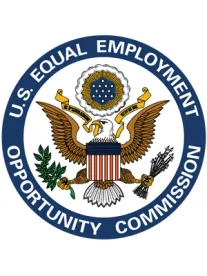On November 17, 2020 the Equal Employment Opportunity Commission (“EEOC”) released proposed updates to its Compliance Manual on Religious Discrimination (“Manual”). The draft revisions (which can be found here) are available for public input until December 17, 2020, after which the EEOC will consider the public’s input, make any changes, and publish the finalized Manual.
The updates do not change any existing obligations under Title VII of the Civil Rights Act of 1964 (“Title VII”) with respect to religious discrimination. However, they do clarify the EEOC’s guidance with respect to Title VII’s religious-related requirements by taking into account various Supreme Court and lower-level court decisions that have been published since 2008, which was the last time the Manual was updated.
Most notably, with respect to individual employee rights, the Manual includes updates to employee protections from religious discrimination in the areas of reasonable accommodations and harassment. Those updates are based, in large part, on the Supreme Court’s decision in EEOC v. Abercrombie & Fitch Stores, Inc., 575 U.S. 768 (2015). In that case, the Supreme Court ruled that an employer can be held liable under Title VII for refusing to hire an applicant based on a religious observance or practice even if the employer did not have “direct” knowledge that a religious accommodation was required. An employee need only show that a reasonable accommodation was a motivating factor in the employer’s decision.
The Manual also includes updated guidance with respect to defenses that may be available to private employers who hold religious views. Informed by the Supreme Court’s decision in Burwell v. Hobby Lobby Stores, Inc., 134 S.Ct. 2751 (2014), the proposed revisions to the Manual reflect that, where certain legal requirements conflict with the religious beliefs of an owner of a closely held corporation, the federal government may not be able to enforce those legal requirements.
Another major concern of the EEOC in revising the Manual is whether the guidance properly balances religious liberties with other civil rights.
As employer- and employee-advocacy groups will weigh in on the proposed changes to guidelines in the Manual over the next month, Employers should continue to monitor any ultimate changes to the EEOC guidance and consult with legal counsel to ensure compliance with the laws.






 />i
/>i

